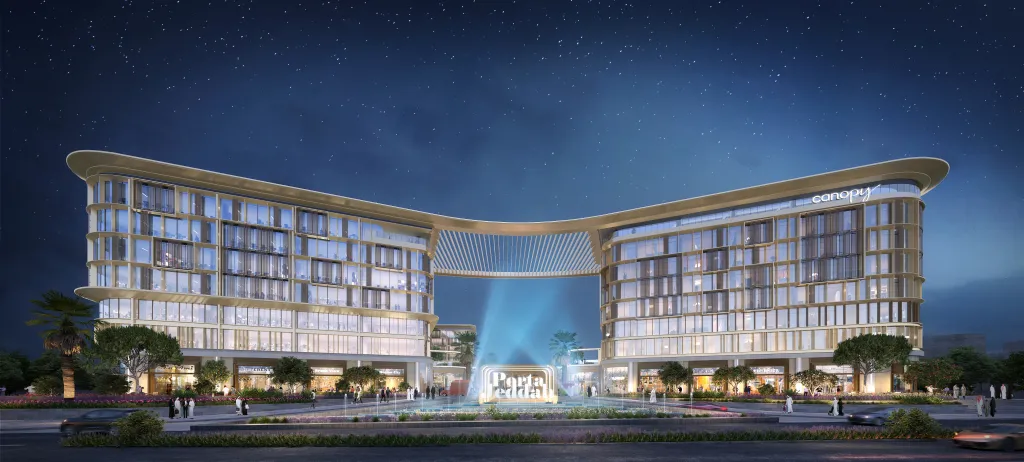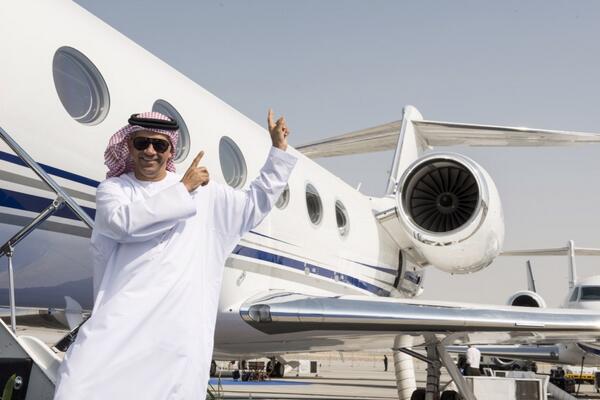Riyadh, Saudi Arabia – As Saudi Arabia continues to fulfill its vision of becoming a world leader for international travel and tourism, Hilton (NYSE: HLT) has announced plans to open over 50 new hotels across 10 of its brands, making the country the company’s largest pipeline market in Europe, the Middle East and Africa (EMEA). Hilton has accelerated its growth strategy in Saudi Arabia in recent years, announcing multiple signings as the company works towards its plans to increase its portfolio to more than 75 trading properties across the country.
The latest of these signings include Conrad Hotels & Resorts entry into the heart of the Saudi capital with Conrad Riyadh Laysen Valley, which is set to open in 2025. Hilton’s growth continues in secondary cities, with the recent signings in Abha, Hilton The Point Residences and Canopy by Hilton The Point, both due to open in 2026.
Conrad Riyadh Laysen Valley

In partnership with Mashareq Investment, Hilton plans to bring its second Conrad Hotels & Resorts property to Saudi Arabia. The 170-key Conrad Riyadh Laysen Valley will bring the brand’s bold design, impactful experiences, and curated contemporary art to inspire travellers throughout their stay. Featuring world-class amenities, purposeful service and guest facilities, the modern, luxury hotel is expected to open in 2025 opposite the city’s diplomatic quarter at the heart of the Laysen Valley development, one of Riyadh’s most prominent high-end, mixed-use real estate projects.
Latest Hotel Signings for Saudi Arabia include:
- Waldorf Astoria Riyadh Diriyah – the iconic 200-room hotel, expected to open in 2028, will be located in a prime position within Diriyah, surrounded by high-end restaurants, luxury retail stores, residences, art galleries and museums.
- Wadi Hanifah, LXR Hotels & Resorts – this secluded retreat, expected to open in 2026, will house 80 immaculately designed guest rooms and enchanting villas, offering Diriyah visitors a lush escape of tranquility and relaxation.
- Canopy by Hilton Al Khobar Ajdan Waterfront – The 120-guest room hotel, expected to open in 2026, is ideally located on the corniche, adjacent to Boulevard Ajdan, the high-end shopping and entertainment destination.
- DoubleTree by Hilton Jeddah Al Andalus Mall – the 164–guest room hotel attached to the Jeddah Al Andalus Mall is due to open next year.
- DoubleTree by Hilton Jeddah Al Marwah – this 178-guest room hotel will be located within close proximity to the King Abdulaziz International Airport, and on the corner of the bustling Hira Street.
- Hampton by Hilton NEOM Community – expected to open later this year, Hampton by Hilton NEOM Community will feature 201 guest rooms.
- Hampton by Hilton Hafr al-Batin – will feature 150 guest rooms and is due to open in 2026.
Hilton currently operates 16 hotels in Saudi Arabia, including Waldorf Astoria Jeddah – Qasr Al Sharq, Conrad Makkah, and Hilton Riyadh Hotel & Residences. Its development pipeline of more than 50 properties includes the introduction of new brands like LXR Hotels & Resorts, Canopy by Hilton, Embassy Suites by Hilton, and Hampton by Hilton.


